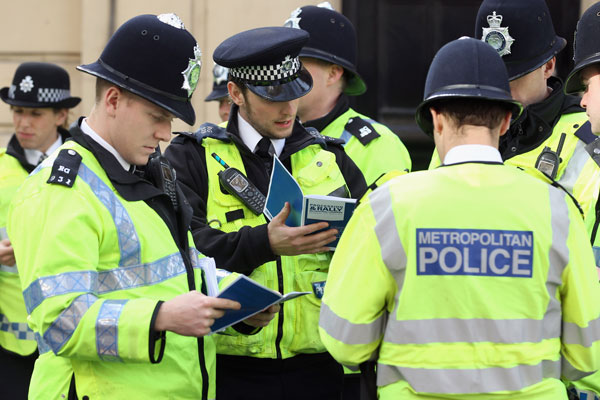West Midlands Police have just announced seven arrests as part of an investigation into alleged terrorist activity. This follows the detention of six individuals on similar charges across London yesterday. Together, they reveal just how active the Islamist network in the UK remains and the potency of its ongoing threat.
One of those arrested in London yesterday, a convert, Richard Dart (also known as Salahuddin al-Britani) first came to prominence last year when his step-brother featured him in a documentary called ‘My brother the Islamist’. It offered a rare observational view on the inability of one family to comprehend the militancy and millenarianism of their son.
Dart was radicalised by a loose nexus of Islamists who were once members of al-Muhajiroun, an extremist group created in London during the mid-1990s. In the immediate aftermath of 9/11 it claimed to have sent hundreds of young men to Afghanistan to fight coalition forces and was eventually proscribed by Tony Blair. It has operated under a carousel of different names ever since and maintains a deliberately diffuse structure to evade authorities.
During his Munich speech last year, David Cameron rightly identified the pernicious nature of these groups. Yes, they might not cross the line into criminality by openly inciting terrorism, but they play a crucial role in priming their supporters with reactionary rage. From there, it’s only a small gap that needs bridging.
Cameron made it clear in Munich that he regards Islamist extremism tout court as the problem, and not just violent extremism. Labour had previously concerned itself with only the latter formulation, while some Whitehall mandarins are known to have pushed back vociferously against Cameron’s desire to broaden the counter-terrorism remit.
He won the day and his wishes found expression in Lord Carlile’s independent review of Prevent; the government’s strategy to stop people being radicalised. Carlile’s review goes further than any previous government document in identifying the influence of extremist groups who peddle Islamist ideology, marking a dramatic change in approach.
Recalibrating the theory behind Prevent has been an uphill battle for Cameron. Too many reputations across Whitehall are staked on its success and mandarins have been reluctant to admit its shortcomings. That fight may have been won, but not enough of its outgrow has yet been translated into active policy on the ground.
The corollary is that – just as it was under Labour – extremists are free to continue their activities with relative impunity until someone strays into committing offences that attract police attention. Cameron committed himself to changing that and to intervening much further upstream. He now needs someone in government willing to take it up and see it through.
Shiraz Maher
Prevent strategy still needs political will






Comments